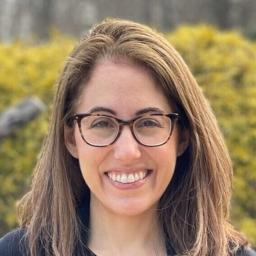At Prizmah’s recent Head of School Retreat, Lisa Coll, chair of Prizmah’s Board of Trustees shared with us, “It’s the hardest job you’ll ever love.” Heads nodded in agreement as Lisa said this, feeling that she had reached the heart of our experience. We found strength in the empathy and support of our colleagues during the course of this retreat and came back to our school communities with a renewed sense of purpose and vision.
Nearly one hundred heads of school from all over North America gathered in Charlotte, North Carolina for Prizmah’s second ever Head of School Retreat. Heads of school, like myself, who were fortunate enough to attend the first Prizmah Head of School Retreat in Fort Lauderdale two years ago, have been eagerly awaiting this opportunity as one that is uniquely relevant and meaningful to our roles and experiences. Distinct and separate from the Prizmah Conference, which brings together teams from Jewish day schools across North America to grow professionally, this was an opportunity to focus on the very unique role of the head of school, an opportunity to grow personally as well.
A few key takeaways from this gathering of truly dedicated and thoughtful school leaders highlight the depth and breadth of the issues facing heads of school and their communities today:
- Since October 7th, Jewish day schools have played a unique and meaningful role in their communities. Schools continue to grapple with how to support the diverse needs of the constituencies of our communities – students of all ages; parents and teachers, Israeli teachers and families; and teachers and families of different faiths. While this challenge has been particularly demanding, emotional, and personal, schools are proud of the role they are playing in navigating these challenges, and their communities are grateful for their leadership.
-
The Jewish calendar brings complexity and opportunity. As we celebrated the new Hebrew month of Adar II together at the retreat, we were compelled to discuss how upcoming Jewish holidays might look in our schools this year as we are still reeling from events in Israel. We discussed Purim, Yom HaZikaron (Israeli Remembrance Day) and Yom Ha’Atzmaut (Israel’s Independence Day) in particular as days that bring with them questions about what may look different in our schools this year.
How do we balance the joy, fun, and silliness of Purim with the heaviness we feel as a Jewish people this year? How do we incorporate the tragedy of October 7th into our Yom HaZikaron programs? How do we transition from Yom HaZikaron to Yom Ha’Atzmaut this year in a way that reflects both our sadness of loss and our commitment to celebrating the Jewish state? How do the choices we make when it comes to these holidays reflect our mission and values as Jewish day schools? Discussing these questions in a group setting helped us begin to think creatively and provide inspiration as we continue to work through them in our school communities in the coming weeks.
-
Heads of school rely on strong teams to execute the mission and day-to-day activities of the school. Dr. Scott Tannenbaum, Ph.D. who facilitated a workshop on “The Science of Teamwork: What Really Drives Team Effectiveness?” shared the importance of reflecting on the effectiveness of the teams in our schools and investing in making them work to their greatest potential. He said, “The best teams are rarely great on day one. They become great by making small, ongoing adjustments.” Periodic debriefs are essential to assessing what is going well and what can be improved. Additionally, Dr. Tannenebaum underscored that teams are built on trust – teams perform better when members share a sense of psychological safety and can be themselves and speak up for themselves.
- Being the “bottom line” day in and day out for our schools can be both lonely and heavy. Whether the scenarios we encounter are profoundly unexpected like Covid and October 7th, or anticipated like interpersonal conflicts and creating a healthy work-life balance, the weight of the headship can take a toll. In a session on “The Weight of the Headship,” heads of schools were able to share stories vulnerably and personally from their experiences. While each school and each head of school is unique, our experience is also shared in so many ways. Even as heads of school deeply appreciate being part of supportive teams at our schools, hearing from colleagues about their personal experiences in the role of Head had a powerful impact on all of us. It also reminded us in a deep way that we are not alone.
I want to take the opportunity to thank the amazing heads of school who attended the conference and shared generously from their wisdom and their hearts. It was an honor to learn from each of you. A huge thank you to Prizmah for the tremendous effort and thoughtfulness that went into each detail of this retreat. We are fortunate to have Prizmah’s strength and expertise supporting our schools in every way. We are stronger for it.
Wishing all of our Jewish day schools and communities strength and resilience in the months ahead with the knowledge that we are here for each other in times of need.



